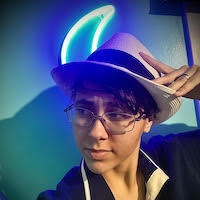How to Write Comedy Into a Scene

Writing comedy is arguably one of the hardest things to master when it comes to writing. Thankfully, Rosalind Sterling is here to give you a comprehensive guide on how to write comedy into a scene!
As much as we love laughter, trying to implement it in our writing can sometimes be more difficult than other aspects of the writing process. So here I’m going to explain the different forms of comedy and how you can properly incorporate them into your writing so you have your reader rolling on the floor. Hopefully from laughter and not from injury, but I digress.
Types of humor:The amount of subgenres for humor is almost endless which is why I’ll focus on the most popular kinds, and the ones I personally write the most so I can give a more experienced perspective on it.
Slapstick comedy- often focuses on exaggerated movements and facial expressions. Most commonly seen in looney toons and the three stooges.
Dark comedy- is a form of humor that takes morbid topics and represents them in a somewhat light-hearted fashion to make us laugh
Parody- a piece of media that makes fun of something else.
Spoof- a lighter version of parodies, and one I often use. It also makes fun of things to make people laugh but more calmly and subtly. Like a story being self-aware of the tropes it uses.
Situational comedy- A type of comedy that draws from the components of a situation and the dynamics of the cast members to create a humorous scene. Like a scene consisting of a ridiculous circumstance that is resolved in a humorous manner.
Now that you have an idea of the different types of comedy out there, how do you make a scene funny? Here are some prime examples and forms your comedy can take.
Make it like a cartoonSlapstick is something you might find difficult to do in the form of a novel, but often I will put my characters in a situation so over the top that it’s hard to envision as anything other than an animated comedy sketch. I might describe the character falling down the stairs in a way so ridiculous that it’s clear it’s comedy’s sake and not to give them a thousand injuries. (Or both, shhh)
I specifically use one description of one of the comedic creatures in my novel in this way. I usually describe these creatures as making a “squeaky toy sound” when they fall or creating different sound effects depending on what they’re doing. This may sound very odd out of context, but the key to making it work is setting the universe in a way that lets the readers know that they’re in for a wild ride, and anything can happen which makes this more believable.
Expect the unexpected:This ties into the first tip. If you have a world where anything could happen. Take advantage of that and surprise the readers. This doesn’t mean your story can’t have rules or limitations, but if your universe allows over-the-top fictional elements, my best advice is to run with it.
For example, it’s noted from the beginning that my story’s universe has a lot of rules that don’t follow our logic. One of these abnormal elements is that animals and other creatures have a large amount of self-awareness. The animals may not talk but can often understand a lot more than what they could in real life. Allowing me to write a wacky comedy about a hedgehog who often drinks lemonade while bathing in the sun, a cat who will give you a dirty look at the smallest of insults, or a dog who can understand sarcasm and slap you upside the head.
Dark comedy- wait no turn the lights back onNah I’m not talking about comedy that takes place in the dark, but that wouldn’t be a bad idea. Just imagine taking a bunch of people who don’t get along and putting them in a dark room to fend for themselves. That’ll lead to some humorous disaster. But that’s not what I’m referring to. I’m talking about humor that delves into an often forbidden zone. Now by no means get the terms dark humor and offensive humor mixed up. There are plenty of ways to use dark comedy in a way that doesn’t anger anyone. For example, you don’t have to say something mean about someone or a group of people to create dark comedy. You could instead make fun of a rather concerning situation like burglary, and make it humorous by adding your own twist. Your main character may have been robbed last night, but be thankful the expensive perfume the guy stole was actually a bottle of mace. No wonder they heard him screaming on his way out…
Don’t be shy, make fun of it :)Okay, so there’s a brand of clothing you really hate. Or a music band you really love. Whether you love or hate your joke’s next victim, the possibilities of things you could make fun of are endless. It doesn’t necessarily have to be an insult though. Something I often parody/spoof in my books is the tropes I use. I find it funny when the characters become aware that they’re in a Hallmark-style romance scene or crying out their feelings no less dramatic than a 90’s soap opera. You could be as friendly or as brutal with this one, so go wild. I will warn that depending on what you are parodying might be copyrighted. Like a movie or song. So I would be careful with those. Though the law does allow parodies as long as they stray far from their original content, there’s nothing funny about a lawsuit…Okay, maybe it’s a little funny depending on the context. But if that’s your concern, you could stick to making fun of tropes, objects, situations, or anything that doesn’t tread the waters of copyright infringement.
Actions speak louder than wordsAnother form of comedy is situational comedy. The situation doesn’t necessarily have to be over the top or chaotic, but feel free to make it such if you feel it fits. But situational comedy is what it’s named after. A comedy that relies solely on the character’s dynamic and scene components to result in a fit of laughter. I remember reading one of the Tales from the Gas station books (the specific book escapes me so forgive my goldfish memory) The main character was in a hospital and didn’t want the doctor to find a piece of paper that I believe was a suspicious diary entry. He panicked when the doctor came in and tried eating the paper after finding no place to hide it. When the doctor spoke to him, he had no choice but to slowly spit out the paper and let it fall to his lap as he and the doctor gave each other an equally concerned look, leaving an awkward silence that made me laugh harder than I expected to. I do recommend that series if you want more examples of wacky cartoonish humor, but these situations don’t have to be wacky to be funny. Depending on how it’s written, it could fit even in the most average and realistic of comedies.
Other ways to add comedy
But what if your universe isn’t wacky? Or you like your humor as clean and lighthearted as my dog’s training history. Okay, maybe that was a bad example. But what if your universe is quite realistic to our own? And the story is geared to a younger audience or people you generally wouldn’t want risky humor going to? If that’s the case, I would go with something a bit lighter. For example, maybe some establishments or organizations have funny names and/or acronyms. Maybe the characters can briefly mention something humorous that happened to them during a completely normal conversation. One minute they’re talking about ice cream, next they’re discussing how they once had a food fight at the local ice cream parlor that resulted in three broken windows, a twenty jail sentence, and a strange fear of mint chocolate chip. How it escalated that quickly is up to you to decide. Chaos and out-of-context sentences can and will be your best friend in some cases. Or maybe your descriptions can be written funnily. (I find this works best if you use unique but ill-fitting comparisons.) Or your cast occasionally breaks the fourth wall and insults your choice of fictional tropes. And lastly, you can never go wrong with one-liners. But I’ll explain how this could go wrong and how you can prevent that.
Keep it in characterI know I know. You have an absolutely stomach twistingly hilarious one-liner or situation you’re ready to unleash to the world to unveil its unholy power of timeless humor. But before you release the beast, think about if it’s really needed. Is this something your character would normally say or do? If not, your one-liner is no longer funny and is instead confusing. If little Jimmy here is so shy and sweet, why did he just rip the most atrocious, earth-shattering deranged, insult to poor and undeserving aunt Gretchen? Okay, maybe that would be funny. Something about children doing the most unexpected and aggressive things makes me laugh. But it’s still out of character. Even if I did laugh, it would make me question what brought on such a sudden and useless addition to the conversation.
Timing and length*Grabs your shoulders and stares into your soul* Now, listen to me closely. Timing and length are everything. Quite literally. You could concoct the most backflip-inducing joke, but put it in the wrong place and you’ll get a less than favorable reaction.
And the length of the joke is just as important. This is important because if you ramble about your punch line, or cut it off too soon, you could soil the humor behind it. I remember reading a fanfiction a while ago that made a really great joke that made me laugh, but they ended up rambling about their punchline and dissecting the reason why it was funny to the point that it made me close the link and stop reading. Please don’t do this. Your readers aren’t stupid. At least I hope not.
Most of the time if you make a joke, your readers will get it, so don’t over-explain it. I’ve fallen victim to this and have gone back to old drafts of mine only to wonder why I was defining a joke as if it wasn’t obvious enough.
These are just a few of the things that help me write humor. Every writer is different and has their own process. If these don’t work for you I suggest looking around and trying new techniques until you find what does. In the meantime. Happy writing and good luck!

Rosalind Sterling is a crime/comedy author, freelance writer, and artist who takes great joy in dabbling outside the box to find new and creative ways to tell stories. They are in the process of publishing the first book in their crime/comedy/sci-fi trilogy “Villain Vs. Villain” in the summer of 2023, and can primarily be found on their Instagram @blues_story_corner as well as their website: https://www.authorrosalindbsterling.com/
Photo by Gabrielle Henderson on Unsplash
Chris Baty's Blog
- Chris Baty's profile
- 63 followers



